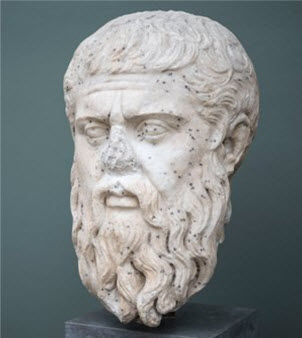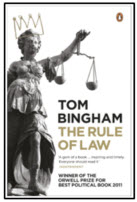Available as a podcast!
The 1992 movie “My Cousin Vinnie” has been described as one of the greatest legal movies of all time, not because of the acting (although Marisa Tomei did win an Academy Award for best actress in a supporting role), or the clothing choices of Vinny Gambini (played by Joe Pesci). In the movie, two young men from New York are charged with murder in an Alabama town that distrusts strangers, especially New Yorkers. The movie depicts how the Rule of Law ultimately prevails when the charges are dismissed.
What is the Rule of Law?
Court cases, articles and textbooks present different definitions of the Rule of Law. But, at its core, the Rule of Law is a collection of ideas that govern how we all relate to each other. There are certain key principles contained in the Rule of Law, including:
- The government enacts law in an open and transparent manner.
- The law is clear and known, and it is applied equally to everyone.
- The law will govern the actions of both government and private persons, and their relationship to each other.
- The courts will apply the law independently of political or outside influence.

What does this mean?
The Rule of Law means that the same laws apply to everyone regardless of their occupation, level of wealth, race, colour, sexual orientation, gender or other personal characteristics. It means that all people are treated equally by the same standards. It means that political influences or popularity polls have no part in a Court of Law. It means that no person is above the law. The requirement that our courts follow the Rule of Law is a fundamental principle of Canada’s democracy.

Where did the Rule of Law come from?
The concept of the Rule of Law dates back as far as ancient Greece, to philosophers such as Plato and Aristotle and to the Magna Carta in the year 1215. In Canada, the Constitution Act, 1982 recognized the Rule of Law, where the Canadian Charter of Rights and Freedoms begins with the following statement:
“Whereas Canada is founded upon principles that recognize the supremacy of God and the rule of law …”
Examples of its application
In a case called Roncarelli v. Duplessis, [1959] S.C.R. 121, the Supreme Court of Canada ruled that the Premier of Quebec had acted arbitrarily and without good faith when he ordered the suspension of a liquor licence issued to Mr. Roncarelli because of his support for members of a religious denomination, and not for any reasons related to the legislation governing the liquor licence.
In its decision in Reference re Secession of Quebec, [1998] 2 S.C.R. 217, the Supreme Court of Canada decided that Quebec did not have the right to secede from Canada unilaterally, stating that “the people of the provinces and territories have created close ties of interdependence (economic, social, political and cultural) based on shared values that include federalism, democracy, constitutionalism and the Rule of Law, and respect for minorities” and that secession would require the involvement of and discussion with other participants in the Canadian Confederation.
In the decision R. v. Jaser, 2014 ONSC 3885, the Ontario Superior Court of Justice was asked to find that the law governing a trial should be in accordance with a holy book rather than the Criminal Code of Canada. The Court held that the Rule of Law was a fundamental principle of the Canadian Constitution and that the Criminal Code was part of a system of “positive laws” that governs in Canada and cannot be overridden.
Why does the Rule of Law matter?
Without the Rule of Law, you could be imprisoned without reason.
Without the Rule of Law, the government could seize your property or remove your children arbitrarily.
Without the Rule of Law, a wealthy person could escape the consequences of intentionally injuring another person for no reason.
The Rule of Law matters because it seeks to treat all persons fairly and equally. Canadian courts strive to protect individual rights by enforcing the Rule of Law. The requirement that our courts follow the Rule of Law remains a fundamental principle of Canada’s democracy.
More reading

The Rule of Law by Tom Bingham, Britain's former senior law lord, examines what the idea actually means: not an arid legal doctrine but the foundation of a fair and just society.
You Don't Know What You've Got 'Til It's Gone: The Rule of Law in Canada - Part I, by Jack Watson, 2015 52-3 Alberta Law Review 689, 2015 CanLIIDocs 56 – discusses various meanings of the Rule of Law.
Related Links
The World Justice Project
Australia’s Magna Carta Institute
Fundamentals of Canadian Law
The Rule of Law: Lexis Nexis Canada
The Law Society of BC’s Rule of Law Podcasts

